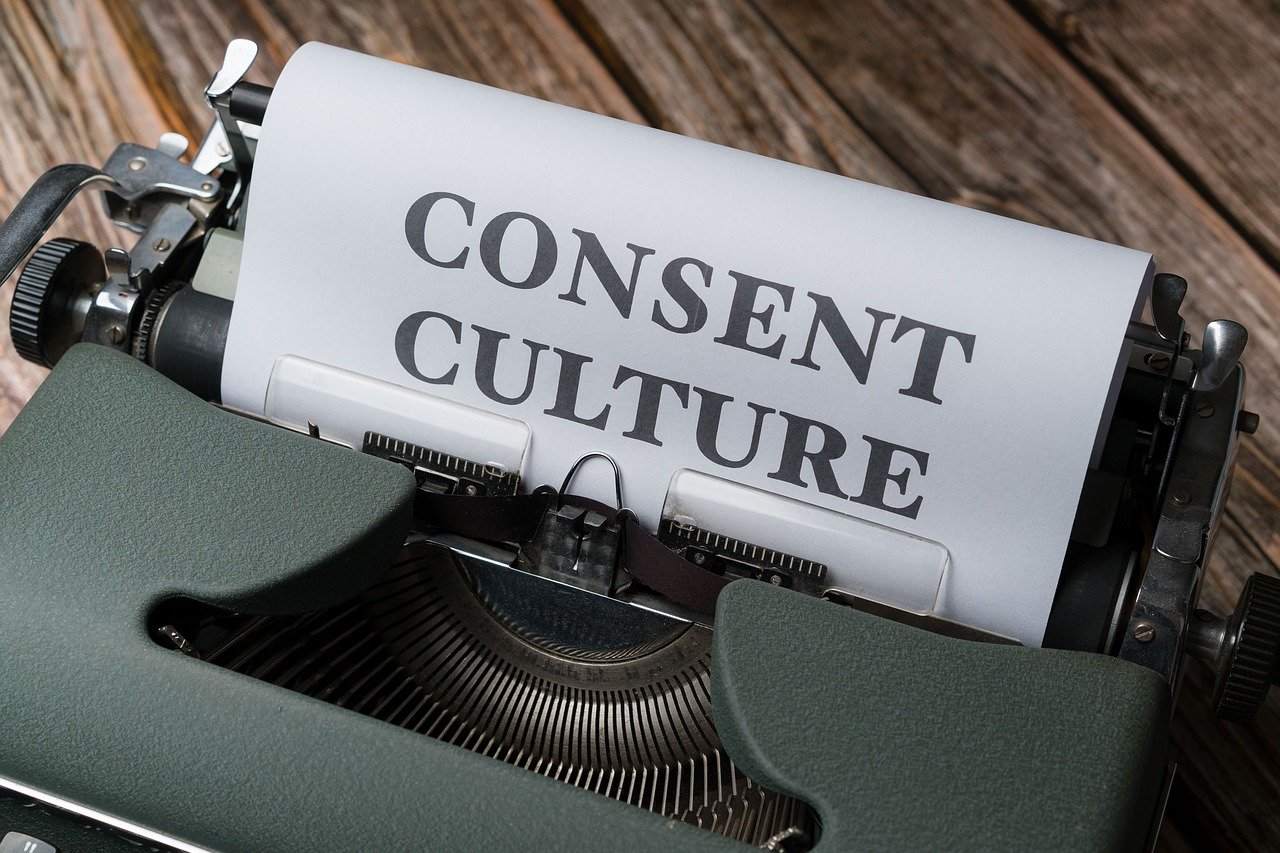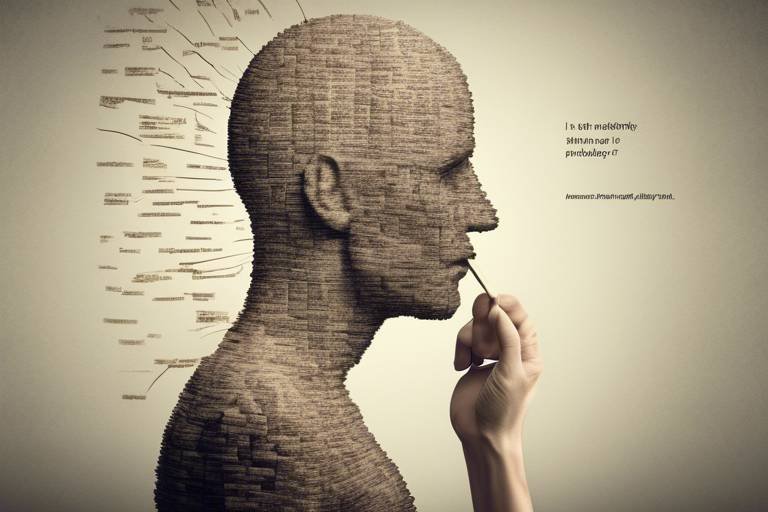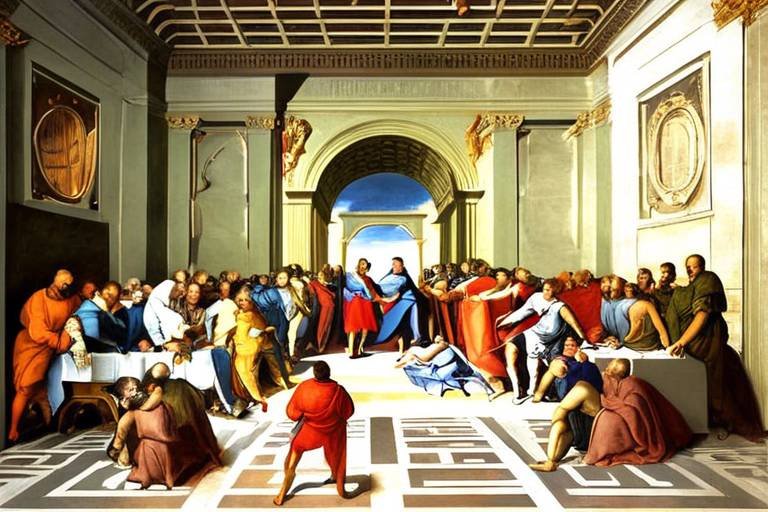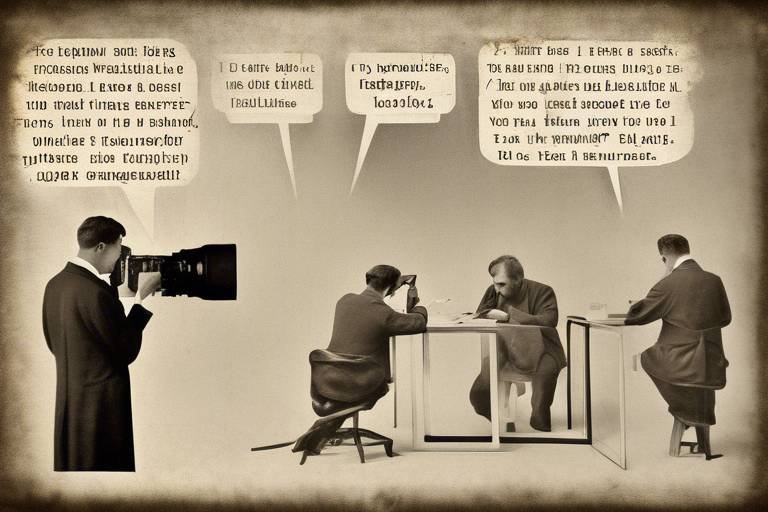Philosophical Concepts Affecting Social Norms and Standards
Philosophy isn't just a dusty old subject reserved for scholars in libraries; it's a vibrant conversation that shapes our everyday lives! The way we perceive right and wrong, the standards we uphold, and the norms we follow are deeply rooted in philosophical concepts. These ideas don’t merely exist in the realm of theory; they manifest in our laws, our interactions, and even our personal choices. Imagine a world where every action is scrutinized through the lens of philosophical inquiry—this is the reality we navigate daily. From the moment we wake up to the time we go to bed, we are constantly weighing our choices against a backdrop of societal expectations that have been influenced by centuries of philosophical thought.
To truly understand how these philosophical concepts affect social norms, we need to dive into the various schools of thought that have emerged over time. For instance, consider how utilitarianism encourages us to think about the greater good rather than our individual desires. This principle has led to significant shifts in how we view welfare, healthcare, and even environmental policies. On the flip side, Kantian ethics introduces a more rigid framework, insisting on duty and moral imperatives that challenge us to act based on universal principles. This opposition between seeking the greatest happiness and adhering to strict moral laws creates a fascinating dynamic in our understanding of ethics.
Moreover, the social contract theory provides another layer to this discourse. It suggests that our norms arise from implicit agreements among individuals, which means that our understanding of justice and governance is continually evolving. The contrast between thinkers like Hobbes and Rousseau illustrates how differing views on human nature can lead to vastly different social expectations. For instance, Hobbes saw humans as naturally self-interested, leading to a more authoritarian view of governance, while Rousseau believed that humans are inherently good, advocating for a more egalitarian society. These contrasting perspectives not only shape political theory but also influence how we interact with one another in everyday life.
As we navigate through these complex ideas, it becomes clear that philosophical concepts are not just abstract thoughts; they are the bedrock upon which our social norms are built. They challenge us to reflect on our values and question the status quo. In a world that is constantly changing, understanding these philosophical underpinnings allows us to adapt our societal standards in a way that is both thoughtful and impactful. So, the next time you find yourself pondering a moral dilemma or debating a social issue, remember that you are participating in a long-standing tradition of philosophical inquiry that has the power to shape our collective future.
- What is the role of philosophy in shaping social norms?
Philosophy provides a framework for understanding morality, ethics, and societal expectations, influencing how we define right and wrong.
- How does utilitarianism affect modern society?
Utilitarianism prioritizes the greatest good for the greatest number, impacting policies related to healthcare, welfare, and environmental issues.
- What are the main critiques of Kantian ethics?
Critics argue that Kantian ethics can be too rigid and impractical, suggesting that more flexible ethical frameworks may be necessary in complex situations.
- How does social contract theory relate to governance?
Social contract theory posits that societal norms arise from agreements among individuals, which shapes our understanding of justice and the legitimacy of laws.

Utilitarianism and Its Impact
Utilitarianism is a philosophical theory that suggests that the best action is the one that maximizes overall happiness or utility. Think of it as a moral compass that guides decisions based on the outcomes they produce rather than the intentions behind them. This approach has significantly influenced social norms, as it prioritizes the collective well-being over individual interests. Imagine a community where every decision is made with the goal of enhancing the happiness of the majority; that's the essence of utilitarianism in action.
One of the key aspects of utilitarianism is its focus on the consequences of actions. This perspective challenges traditional moral frameworks that often emphasize intentions or duties. For instance, consider a scenario where a company decides to cut costs by laying off employees. A utilitarian approach would evaluate whether the decision ultimately leads to greater overall happiness—perhaps by saving the company from bankruptcy and preserving jobs in the long run. However, this raises an important question: at what cost does maximizing utility come?
Utilitarianism reshapes ethical standards in various contexts, from politics to personal relationships. In politics, for example, policies are often evaluated based on their potential to create the greatest good for the greatest number. This can lead to laws that prioritize public health, education, and welfare over individual rights. For instance, when debating public health measures, such as vaccination mandates, a utilitarian perspective might argue for the greater good of herd immunity, even if it means infringing on personal freedoms.
Moreover, utilitarianism encourages a more inclusive approach to ethics. It prompts individuals and societies to consider the broader implications of their actions, fostering a sense of responsibility toward others. By evaluating decisions through a utilitarian lens, people are more likely to engage in acts of kindness, charity, and community service, ultimately contributing to a more compassionate society.
However, the utilitarian approach is not without its critiques. Critics argue that it can lead to morally questionable decisions, as it sometimes justifies actions that may harm a minority for the sake of the majority. This raises ethical dilemmas about justice and fairness. For instance, if a government decides to implement policies that benefit the majority while neglecting the needs of a vulnerable minority, is that truly ethical? This tension highlights the need for a balanced approach that considers both individual rights and collective welfare.
In conclusion, utilitarianism profoundly impacts social norms by emphasizing the importance of collective well-being and the consequences of our actions. While it encourages a more inclusive and responsible ethical framework, it also presents challenges that require careful consideration. As society continues to evolve, the principles of utilitarianism will likely remain a guiding force in shaping our moral landscape.

Kantian Ethics and Duty
Kantian ethics, rooted in the philosophy of Immanuel Kant, is a compelling framework that emphasizes the importance of duty and moral imperatives. Unlike many ethical theories that focus on the outcomes of actions, Kantian ethics challenges us to consider the intentions behind our actions. This approach advocates for adherence to universal moral laws, suggesting that our actions should be guided by principles that could be applied universally. Imagine a world where every decision is made with the intent of upholding a universal moral standard—this is the essence of Kantian ethics.
One of the most significant contributions of Kantian ethics is its insistence on the inherent dignity and worth of every individual. The philosophy posits that every person should be treated as an end in themselves, rather than as a means to an end. This notion profoundly influences social norms by promoting respect for individual autonomy. In practice, this means that societal standards should reflect a commitment to recognizing and protecting the rights of individuals, fostering an environment where everyone is valued.
Moreover, Kant’s concept of moral law and the principle of universalizability require that we evaluate our actions based on whether they could be willed as a universal law applicable to everyone. This leads to a reevaluation of social norms, as societies strive to ensure fairness and consistency in ethical considerations across different cultures. For instance, when contemplating laws regarding human rights, Kantian ethics urges us to consider whether such laws could be universally accepted and applied, promoting a more equitable society.
However, it’s essential to recognize that Kantian ethics is not without its critiques. Some argue that its rigid adherence to duty can lead to impractical outcomes. For example, a strict Kantian approach might insist that one must always tell the truth, even if doing so could cause harm. This rigidity prompts discussions about how social norms might adapt to accommodate more flexible and context-sensitive ethical frameworks. The challenge lies in balancing the unwavering commitment to duty with the need for compassion and understanding in complex situations.
In summary, Kantian ethics and the emphasis on duty provide a robust framework for evaluating moral actions and social norms. By advocating for respect for individuals and universal moral principles, it challenges us to rethink our societal expectations and strive for a more just and equitable world. As we navigate the complexities of modern life, the insights from Kantian ethics remain incredibly relevant, urging us to act with integrity and respect for the moral law.
- What is the main idea behind Kantian ethics? Kantian ethics emphasizes that actions should be guided by moral duties and universal principles rather than consequences.
- How does Kantian ethics influence social norms? It promotes respect for individual autonomy and the inherent dignity of every person, shaping laws and societal expectations.
- What is the principle of universalizability? This principle requires that moral actions be applicable to all, leading to fairness and consistency in ethical considerations.
- What are some critiques of Kantian ethics? Critics argue that it can be rigid and impractical, sometimes leading to outcomes that may not consider the nuances of real-life situations.

Autonomy and Respect for Persons
The concept of autonomy is a cornerstone of Kantian ethics, emphasizing that every individual possesses the inherent right to make choices about their own lives. This principle is not just a philosophical abstraction; it profoundly influences our social norms and expectations. When we respect a person's autonomy, we acknowledge their ability to govern themselves and make decisions that shape their destiny. Imagine a world where every decision is made for you, stripping away your freedom to choose. It would be akin to living in a cage, where the bars are made of societal expectations and norms that do not consider individual desires or needs.
In practical terms, respecting autonomy means recognizing the dignity and worth of each person. This respect manifests in various ways, such as in legal frameworks that protect individual rights, healthcare policies that prioritize informed consent, and educational systems that encourage critical thinking and self-directed learning. For instance, when patients are given the autonomy to make informed decisions about their medical treatments, they are empowered to take control of their health, leading to better outcomes and greater satisfaction.
Moreover, the respect for persons extends beyond mere acknowledgment of autonomy; it also involves actively promoting conditions that allow individuals to exercise their rights. This includes creating an environment where diverse opinions are valued, and where people feel safe expressing their thoughts without fear of retribution. Think of it as a garden where each plant—each person—needs space, sunlight, and nourishment to thrive. Just as a gardener tends to the needs of each plant, society must cultivate an atmosphere that respects and nurtures individual autonomy.
However, the balance between autonomy and social norms can sometimes lead to tension. For example, while autonomy promotes individual freedom, it can clash with cultural or societal expectations. This raises important questions: How do we navigate situations where personal choices may harm others? Should societal norms intervene in personal decisions for the greater good? These dilemmas illustrate the ongoing dialogue between individual rights and collective responsibilities, a conversation that is essential for evolving social standards.
In conclusion, the principles of autonomy and respect for persons are not just philosophical ideals; they are practical guidelines that shape our interactions and societal structures. By fostering a culture that values individual autonomy, we not only enhance personal dignity but also enrich the fabric of society itself. After all, when individuals are empowered to make choices, they contribute to a more vibrant and dynamic community, where everyone has a voice and a stake in shaping the future.
- What is autonomy in the context of Kantian ethics?
Autonomy refers to the ability of individuals to make their own choices and govern themselves, which is fundamental to respecting their dignity and moral worth. - How does respect for persons influence social norms?
Respect for persons encourages a culture that values individual rights and freedoms, leading to laws and practices that protect these rights. - Can autonomy conflict with societal expectations?
Yes, there can be tension between individual autonomy and societal norms, especially when personal choices may impact the well-being of others. - Why is informed consent important in healthcare?
Informed consent allows patients to exercise their autonomy by making knowledgeable decisions about their medical treatments, ensuring they have control over their health.

Moral Law and Universalizability
Kant’s concept of moral law is intricately tied to the idea of universalizability, which serves as a cornerstone of his ethical framework. To put it simply, this principle posits that an action is only morally right if it can be universally applied to everyone without contradiction. Imagine if everyone lied whenever it suited them; trust would crumble into dust, and social interactions would become chaotic. This thought experiment illustrates why Kant believed that moral actions must be consistent and applicable to all individuals, regardless of their personal circumstances or desires.
The implications of universalizability are profound. It compels us to evaluate our actions not just based on their outcomes but on whether they can be accepted as a universal law. For instance, if you consider stealing, you must ask yourself: "What if everyone stole?" The answer reveals a contradiction and highlights why stealing cannot be justified as a moral action. This framework encourages individuals to look beyond personal gain and consider the broader impact of their actions on society as a whole.
Moreover, this principle fosters a sense of fairness and consistency in ethical considerations. It challenges us to reflect on our moral decisions and encourages a society where laws and norms are grounded in mutual respect and equity. By adhering to this moral law, we can work towards a more just society where individuals are treated with dignity and respect.
However, the application of universalizability is not without its challenges. Critics often argue that it can be overly rigid, failing to account for complex human emotions and situations. For example, consider a scenario where lying could save a life. Kantian ethics would struggle to accommodate such exceptions, leading to debates about whether the moral law should allow for flexibility. This tension between strict adherence and the need for context-sensitive ethics invites ongoing discussions about how social norms might evolve to address these complexities.
In conclusion, Kant's moral law and the principle of universalizability serve as vital tools for evaluating ethical behavior and shaping social norms. They remind us that our actions have consequences that extend beyond ourselves, urging us to act in ways that promote fairness and respect for all individuals. As society continues to grapple with ethical dilemmas in an increasingly complex world, these philosophical concepts remain crucial for guiding our moral compass.
- What is the principle of universalizability?
The principle of universalizability states that an action is only morally right if it can be applied universally to everyone without contradiction.
- How does Kant's moral law influence social norms?
Kant's moral law encourages individuals to consider the broader implications of their actions, promoting fairness and dignity in social interactions.
- Are there criticisms of Kantian ethics?
Yes, critics argue that Kantian ethics can be too rigid and may not account for complex human emotions and situations.

Critiques of Kantian Ethics
Kantian ethics, while revered for its emphasis on duty and moral imperatives, is not without its share of criticisms. One of the most significant critiques is its perceived rigidity. Critics argue that Kant's categorical imperative, which demands that moral actions be universally applicable, can lead to outcomes that seem cold or detached from the emotional realities of human life. For instance, if a person must choose between telling the truth and protecting a loved one from harm, Kantian ethics would insist on honesty, potentially leading to distressing consequences. This raises the question: should moral principles always take precedence over emotional considerations?
Moreover, the insistence on duty can sometimes overshadow the importance of context. In real-life scenarios, ethical dilemmas often involve complex factors that Kantian ethics does not adequately address. For example, consider a situation where breaking a promise could prevent significant harm to others. Critics argue that Kant's framework may fail to provide a satisfactory resolution, as it does not allow for flexibility or the weighing of consequences. This rigidity can create a disconnect between ethical theory and the messy realities of human relationships.
Another critique centers around the concept of moral absolutism inherent in Kantian ethics. The idea that certain actions are categorically right or wrong can be problematic in a diverse world where cultural norms and values vary significantly. Some argue that this approach can lead to ethical imperialism, where one culture's moral framework is imposed on another, disregarding the unique contexts and values of different societies. This brings to light the challenge of finding common ground in a pluralistic world where multiple ethical perspectives exist.
Despite these critiques, it's important to acknowledge that Kantian ethics has spurred valuable discussions about moral philosophy and the nature of duty. Many contemporary philosophers are working to adapt Kantian principles to address its limitations, seeking a balance between universal moral laws and the nuances of individual circumstances. This ongoing dialogue demonstrates the dynamic nature of ethical thought and its ability to evolve in response to critiques.
In summary, while Kantian ethics offers a robust framework for understanding morality, it faces significant challenges that highlight the need for a more flexible approach to ethical decision-making. By considering these critiques, we can enrich our understanding of ethics and develop a more nuanced perspective that respects both universal principles and the complexities of human experience.
- What is Kantian ethics? Kantian ethics is a deontological moral theory developed by philosopher Immanuel Kant, emphasizing duty and adherence to universal moral laws.
- What are the main critiques of Kantian ethics? Critics argue that it is rigid, lacks flexibility, and can lead to morally questionable outcomes in complex situations.
- How does Kantian ethics view consequences? Kantian ethics prioritizes the intention behind actions rather than the consequences, which can sometimes lead to difficult ethical dilemmas.
- Can Kantian ethics adapt to modern ethical dilemmas? Some contemporary philosophers are working to adapt Kantian principles to better address the complexities of modern ethical issues.

Virtue Ethics and Character
When we dive into the realm of virtue ethics, we find ourselves exploring a fascinating landscape where the focus shifts from mere rules and regulations to the very essence of who we are as individuals. Imagine walking into a room filled with people, each embodying different virtues—courage, honesty, compassion. Virtue ethics challenges us to ask, "What kind of person do I want to be?" rather than "What should I do?" This shift in perspective not only reshapes our understanding of morality but also profoundly influences the social norms that govern our interactions.
At its core, virtue ethics emphasizes the development of moral character. It's not just about following a checklist of dos and don'ts; it's about cultivating qualities that lead to a flourishing society. Think of it as tending to a garden. Just as a gardener nurtures plants to grow strong and healthy, virtue ethics encourages individuals to nurture their character traits. When we cultivate virtues like kindness, integrity, and humility, we contribute to a more harmonious community. This approach fosters an environment where ethical behavior is not just a duty but a natural extension of who we are.
In practical terms, virtue ethics has a significant impact on social standards. For instance, consider how virtues are celebrated in different cultures. In some societies, courage may be revered, while in others, wisdom takes precedence. These cultural variations highlight the dynamic nature of social norms influenced by the virtues that a community values. When individuals strive to embody these virtues, they not only elevate their character but also inspire those around them to do the same. This ripple effect can lead to a collective elevation of societal standards, creating a more ethical and compassionate world.
However, it's important to note that the journey of cultivating virtue is not without its challenges. In a world often driven by instant gratification and material success, the pursuit of virtue can feel like a daunting task. Yet, this is where the beauty of virtue ethics lies. It reminds us that character is built over time, through consistent effort and reflection. As we navigate our daily lives, we can ask ourselves questions like, "Am I acting with integrity in this situation?" or "How can I show compassion to those around me?" These reflective practices not only strengthen our character but also contribute to the evolution of social norms.
In conclusion, virtue ethics serves as a powerful framework that encourages individuals to focus on their character and the virtues they embody. By prioritizing personal growth and ethical development, we can create a society that values integrity, compassion, and justice. As we strive to be better individuals, we inevitably shape the social standards that govern our interactions, creating a cycle of positivity and moral excellence. So, the next time you find yourself at a crossroads, remember: it's not just about the choice you make, but the kind of person you become in the process.
- What is virtue ethics? Virtue ethics is a philosophical approach that emphasizes the importance of moral character and virtues in ethical decision-making, rather than focusing solely on rules or consequences.
- How does virtue ethics influence social norms? By encouraging individuals to cultivate positive character traits, virtue ethics can lead to a collective enhancement of social standards, fostering a more ethical and compassionate society.
- What are some examples of virtues? Common virtues include honesty, courage, compassion, integrity, and humility. Each culture may prioritize different virtues based on their values.
- Why is character important in ethics? Character is important because it shapes how individuals respond to ethical dilemmas and influences their actions, ultimately affecting the moral fabric of society.

Social Contract Theory
Social contract theory is a fascinating lens through which we can examine the foundations of our society. At its core, this theory suggests that the norms and rules governing our lives arise from an implicit or explicit agreement among individuals. Imagine a group of people stranded on a deserted island, each with their own ideas about how to survive. To thrive, they must come together and agree on certain rules—this is the essence of the social contract. It’s not just about survival; it’s about creating a framework for justice and governance that reflects the collective will and shared values of the community.
The beauty of social contract theory lies in its versatility. It has been used to explain the legitimacy of political authority and the nature of individual rights. Think of it as the glue that binds individuals to the state, ensuring that everyone understands their responsibilities and rights. Philosophers like Thomas Hobbes and Jean-Jacques Rousseau have offered contrasting views on this concept, each providing unique insights into human nature and the formation of society. While Hobbes viewed humans as inherently self-interested and in need of a strong authority to maintain order, Rousseau believed that people are naturally good and that society corrupts them. This divergence highlights how different philosophical perspectives can shape our understanding of social norms.
In modern times, social contract theory continues to be relevant as we grapple with issues of justice, equality, and governance. For instance, consider how contemporary debates around social justice often reference the social contract. Are the rights and responsibilities outlined in our laws reflective of an agreement that serves all members of society? This inquiry leads to a deeper examination of our legal systems and the social contracts that underpin them. As societal values evolve, so too do our interpretations of what constitutes a fair and just agreement among individuals.
Moreover, the implications of social contract theory extend beyond politics into areas like ethics and morality. The idea that we are bound by mutual agreements can influence personal conduct and social expectations. For example, when we engage in community service or support local initiatives, we are participating in a social contract that promotes collective well-being. It’s a reminder that our actions have consequences not just for ourselves but for the larger community.
| Philosopher | View on Human Nature | Implications for Society |
|---|---|---|
| Thomas Hobbes | Self-interested and competitive | Need for strong authority to prevent chaos |
| Jean-Jacques Rousseau | Inherently good but corrupted by society | Emphasis on freedom and equality |
As we navigate our increasingly complex world, the principles of social contract theory serve as a reminder of the importance of dialogue and consensus in shaping our social norms. The agreements we forge—whether through formal laws or informal understandings—are crucial in determining how we interact with one another. In a sense, every time we engage in a conversation about rights and responsibilities, we are participating in an ongoing social contract that adapts to our changing values and circumstances.
Today, social contract theory is more relevant than ever. Issues such as climate change, social inequality, and technological advancements challenge us to rethink the agreements we have in place. Are our current social contracts equitable? Do they adequately address the needs of marginalized communities? These questions compel us to reconsider the foundations of our societal norms and strive for a more inclusive understanding of justice.
In conclusion, social contract theory not only provides a framework for understanding the origins of societal norms but also invites us to actively participate in shaping those norms. By recognizing our role in the social contract, we can work towards a society that reflects our shared values and aspirations.
- What is social contract theory? Social contract theory posits that societal norms arise from agreements among individuals regarding their rights and responsibilities.
- Who are the main philosophers associated with social contract theory? Key figures include Thomas Hobbes and Jean-Jacques Rousseau, each offering different perspectives on human nature and society.
- How does social contract theory relate to modern issues? It helps us understand and evaluate current social norms, particularly in discussions about justice, equality, and governance.

Hobbes vs. Rousseau
The philosophical debate between Thomas Hobbes and Jean-Jacques Rousseau offers a fascinating glimpse into the nature of humanity and the foundations of society. Hobbes, in his seminal work Leviathan, paints a rather grim picture of human nature. He argues that in a state of nature, individuals are driven by self-interest, leading to a "war of all against all." This perspective suggests that without a strong central authority, life would be "solitary, poor, nasty, brutish, and short." In Hobbes' view, social norms and governance arise from a collective agreement to surrender certain freedoms in exchange for security and order. This social contract, he argues, is essential to prevent chaos and ensure the survival of society.
On the other hand, Rousseau presents a more optimistic view of human nature. In his work The Social Contract, he posits that humans are inherently good but become corrupted by society. Rousseau's famous phrase, "Man is born free, and everywhere he is in chains," encapsulates his belief that social norms often impose artificial inequalities and restrictions on natural freedoms. He argues that true social norms should emerge from the general will of the people, emphasizing democracy and collective decision-making. According to Rousseau, the ideal society is one where individuals retain their autonomy while working together for the common good.
To better understand their contrasting views, consider the following table that summarizes their key differences:
| Aspect | Thomas Hobbes | Jean-Jacques Rousseau |
|---|---|---|
| View of Human Nature | Selfish and competitive | Inherently good but corrupted by society |
| State of Nature | Chaotic and violent | Peaceful and cooperative |
| Social Contract | Exchange of freedom for security | Collective agreement for the common good |
| Role of Government | Strong, centralized authority | Democratic and participatory |
This philosophical dichotomy has profound implications for how we understand social norms today. Hobbes' perspective leads to a more authoritarian approach to governance, where laws and regulations are necessary to maintain order, often at the expense of individual freedoms. Conversely, Rousseau's ideas encourage a more egalitarian framework, advocating for social norms that empower individuals and promote community participation. The ongoing dialogue between these two thinkers continues to shape modern discussions about governance, rights, and the role of individuals in society.
As we navigate the complexities of contemporary social norms, the insights from Hobbes and Rousseau remind us that the balance between individual liberty and societal order remains a critical conversation. Their philosophies challenge us to reflect on the nature of our agreements and the values we uphold as a society.
- What is the main difference between Hobbes and Rousseau? Hobbes views human nature as selfish and advocates for a strong central authority, while Rousseau believes humans are inherently good and supports democracy and collective decision-making.
- How do Hobbes and Rousseau influence modern political thought? Their contrasting views continue to shape discussions on governance, rights, and the balance between individual freedom and societal order.
- What is the social contract theory? Social contract theory posits that societal norms arise from agreements among individuals, influencing our understanding of justice and governance.

Modern Applications of Social Contract
The concept of the social contract has evolved significantly in modern discourse, adapting to the complexities of contemporary society. This theory, which suggests that individuals consent, either explicitly or implicitly, to form a society and abide by its rules, has profound implications today. It serves as a foundational idea in discussions surrounding human rights, government legitimacy, and the balance of individual freedoms with collective responsibilities.
One of the most compelling modern applications of social contract theory is its role in shaping democratic governance. In democratic societies, the legitimacy of the government is often viewed as contingent upon the consent of the governed. This principle underscores the importance of public participation and accountability in political processes. Citizens are seen not merely as subjects of the law but as active participants in the creation and maintenance of social norms and standards. The idea that citizens have the right to challenge or change their government if it fails to uphold the social contract is a powerful motivator for civic engagement.
Furthermore, the social contract theory informs debates on social justice and equity. As societies become increasingly diverse, the need to revisit and revise social contracts to ensure they reflect the values and needs of all community members is paramount. For example, marginalized groups often advocate for a re-examination of social contracts to address historical injustices and ensure equitable treatment under the law. This ongoing dialogue emphasizes the dynamic nature of social norms, which must evolve in response to the changing landscape of societal values.
In the realm of public health, the social contract takes on a particularly interesting dimension. The COVID-19 pandemic illustrated how societal norms can shift rapidly in response to collective crises. Governments implemented measures such as lockdowns and vaccination mandates, arguing that these actions were necessary for the greater good. Here, the social contract was invoked to justify restrictions on individual liberties in favor of public health. This situation raised critical questions about the limits of governmental power and the responsibilities of citizens to one another, highlighting the delicate balance between individual rights and collective welfare.
Moreover, the rise of technology and social media has introduced new challenges and opportunities for the social contract. The digital age has transformed how individuals interact and engage with societal norms. For instance, the spread of misinformation can undermine trust in institutions, prompting calls for a reevaluation of the social contract in the context of digital citizenship. As people navigate the complexities of online interactions, the expectations of behavior and accountability are evolving, necessitating a modern understanding of social contracts that encompasses both online and offline conduct.
To summarize, the modern applications of social contract theory reflect a rich tapestry of ideas and challenges that resonate in today's world. From democratic governance to social justice and public health, the principles underlying social contracts remain relevant, guiding discussions on rights, responsibilities, and the role of government in society. As we continue to navigate these complexities, the social contract serves as a vital framework for understanding how we can collectively shape a just and equitable society.
- What is the social contract theory? The social contract theory posits that individuals agree, either explicitly or implicitly, to form a society and abide by its rules, which shapes the legitimacy of government and societal norms.
- How does social contract theory apply to modern democracy? In modern democracies, the legitimacy of the government relies on the consent of the governed, emphasizing public participation and accountability.
- What role does social contract theory play in social justice? It informs discussions on equity and justice, advocating for the inclusion of marginalized voices and the revision of social norms to address historical injustices.
- How has the COVID-19 pandemic influenced the social contract? The pandemic prompted a reevaluation of individual rights versus collective responsibilities, as governments implemented measures for public health that challenged traditional notions of personal freedom.
- What challenges does technology pose to the social contract? The rise of digital communication has transformed societal interactions, raising questions about accountability and behavior in both online and offline spaces.
Frequently Asked Questions
- What is Utilitarianism and how does it affect social norms?
Utilitarianism is a philosophical theory that suggests the best actions are those that maximize overall happiness or utility. This approach significantly impacts social norms by emphasizing the importance of collective well-being over individual interests, leading to ethical standards that prioritize the greater good in various contexts.
- How does Kantian ethics challenge traditional social norms?
Kantian ethics focuses on the importance of duty and moral imperatives, advocating for actions based on universal principles rather than the consequences of those actions. This perspective can challenge traditional social norms by promoting ethical behavior that respects individual autonomy and the inherent dignity of every person, reshaping our understanding of morality.
- What is the significance of autonomy in Kantian ethics?
Autonomy is a key tenet of Kantian ethics, emphasizing the respect for individual rights and dignity. This principle influences social standards by advocating for the recognition and protection of personal freedoms, which helps shape laws and societal expectations that honor each person's inherent worth.
- What does Kant mean by universalizability in moral law?
Kant's idea of universalizability requires that moral actions must be applicable to everyone without exception. This leads to a reevaluation of social norms to ensure fairness and consistency in ethical considerations across different cultures, promoting a more equitable society.
- What are some critiques of Kantian ethics?
Critics argue that Kantian ethics can be overly rigid and impractical, often lacking flexibility in real-world situations. These critiques prompt discussions on how social norms might adapt to accommodate more context-sensitive ethical frameworks that consider the complexities of human behavior.
- How does virtue ethics influence social norms?
Virtue ethics emphasizes the development of moral character and encourages individuals to cultivate virtues that contribute to a flourishing society. This approach influences social norms by promoting behaviors that go beyond mere rule-following, fostering a community centered around shared values and moral excellence.
- What is social contract theory and its relevance today?
Social contract theory posits that societal norms arise from agreements among individuals, shaping our understanding of justice and governance. Its relevance today is evident in discussions about rights, responsibilities, and the role of government, reflecting evolving social norms in response to changing societal values.
- What are the key differences between Hobbes and Rousseau's views on social contracts?
Hobbes and Rousseau provide contrasting views on human nature and the formation of society. Hobbes sees humans as inherently self-interested and believes that a strong authority is necessary to maintain order, while Rousseau views humans as inherently good and argues that society corrupts them. These differing perspectives shape how we understand social norms and expectations in various contexts.
- How are modern interpretations of social contract theory applied in contemporary discussions?
Modern interpretations of social contract theory continue to influence debates on individual rights and governmental responsibilities. These discussions reflect the evolving nature of social norms as societies grapple with new challenges and changing values, highlighting the importance of adapting our understanding of justice and governance.


















